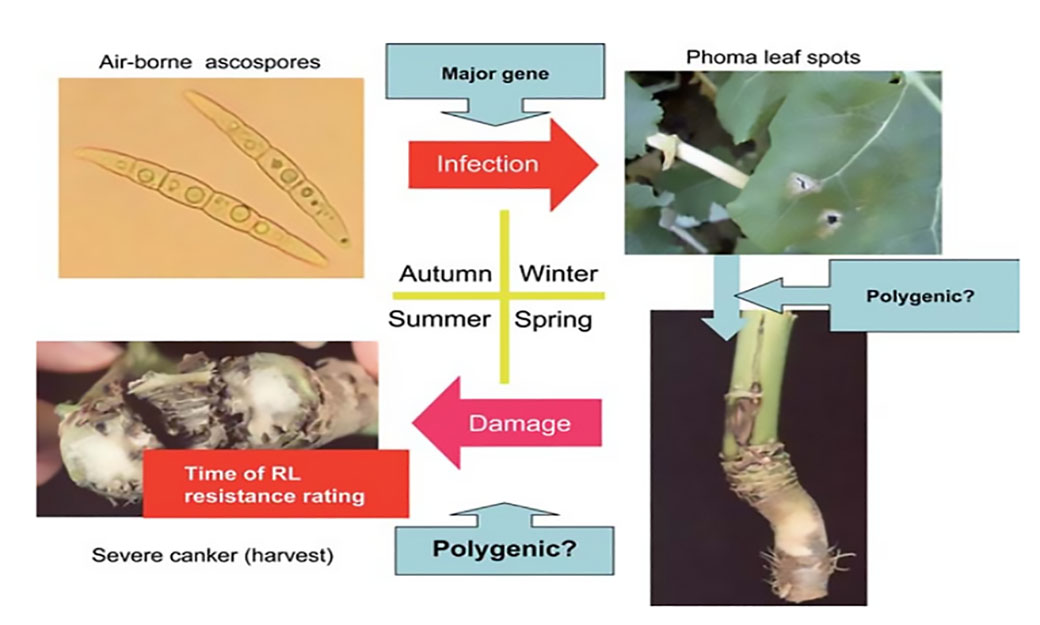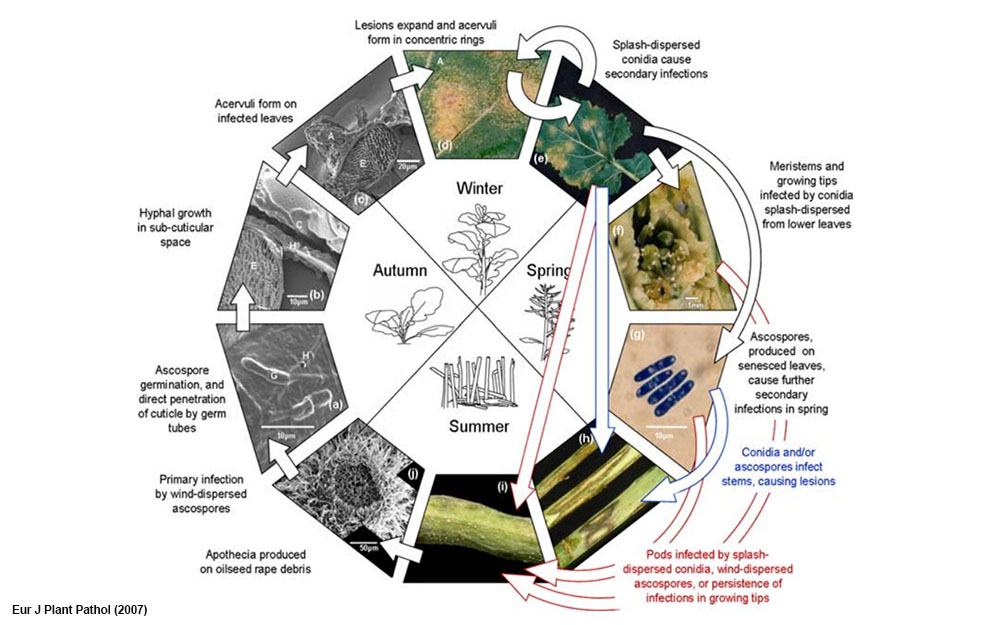Arable crop diseases
Devising sustainable strategies for management of serious diseases of arable crops and their causes.
Research on oilseed rape focuses on phoma stem canker (Figure 1, caused by Leptosphaeria maculans and L. biglobosa) and light leaf spot (Figure 2; caused by Pyrenopeziza brassicae).
Our research areas include:
- epidemiology in relation to genetics of host-pathogen interactions
- diagnosis of complex infections by biological and molecular methods
- evolutionary changes in pathogen populations (e.g. changes from avirulence to virulence against existing resistance genes)
- pathogen variation in space and time
- factors underlying epidemic development (e.g. spore dispersal, spore germination, infection, latent period, incubation period, sporulation) in relation to environmental factors (rainfall, temperature)
A main objective of the research is to devise sustainable strategies for management of serious diseases of arable crops by understanding more about resistance against the pathogens that cause these diseases and developing forecasting schemes to optimise fungicide use.
The group has developed forecasts to predict risks of severe disease epidemics (e.g. web-based interactive forecast for winter oilseed rape light leaf spot), both now and under predicted climate change.
Figure 1. Seasonal cycle of phoma stem canker epidemics in the UK in relation to components of oilseed rape (Brassica napus) resistance against Leptosphaeria maculans (modified from Fitt et al., 2006, European Journal of Plant Pathology 114: 3-15).

Figure 2. Seasonal cycle of light leaf spot epidemics in the UK in relation to components of oilseed rape (Brassica napus) resistance against Pyrenopeziza brassicae.(based on Boys et al., 2007, European Journal of Plant Pathology 118, 307-321).

Effector-triggered defence against apoplastic fungal pathogens
Key staff
Professor Bruce DL Fitt MA PhD DIC FRSB
A comprehensive Climate Change and Crop Protection staff list can be found here, and a list of publications may be found here.